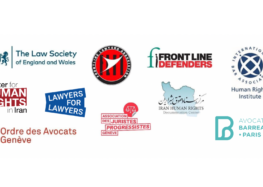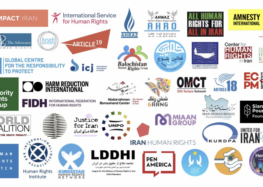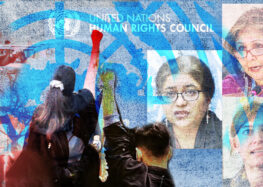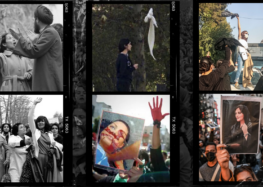Nuclear Accord with Iran is a Victory for Diplomacy and Peace
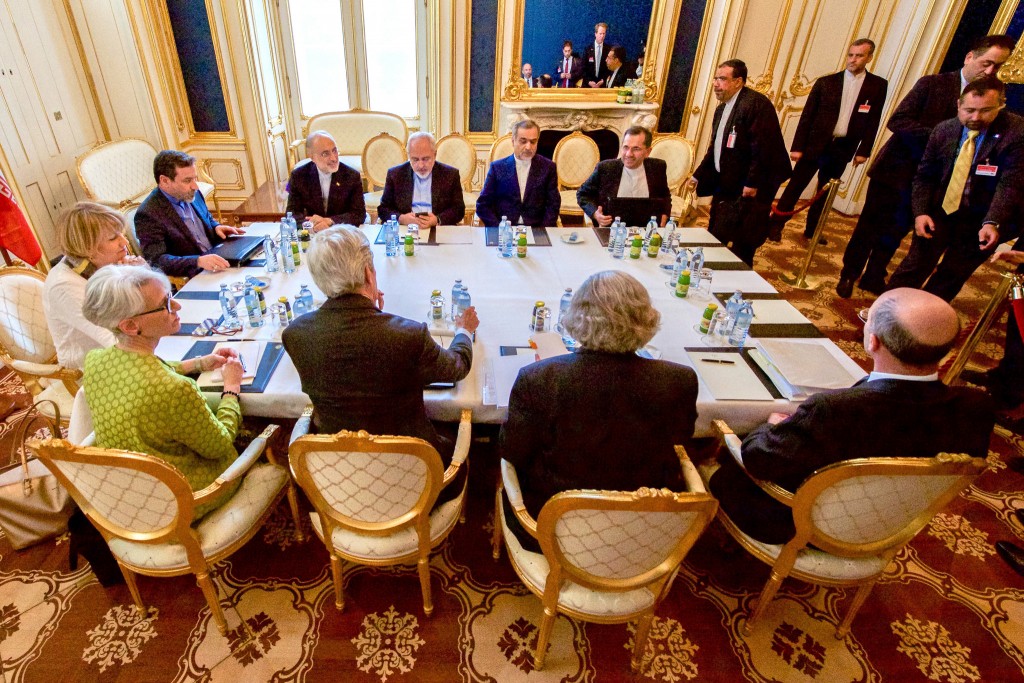
Human Rights Must Be Pursued with the Same Vigor
July 14, 2015—The agreement between Iran and the P5+1 world powers on the Islamic Republic’s nuclear activities, reached on July 14, 2015 after many months of arduous negotiation, is a major achievement, to be welcomed by all who are committed to the maintenance of international peace.
“With this agreement, the threat of war, which would have been catastrophic for all, has receded,” said Hadi Ghaemi, Executive Director of the International Campaign for Human Rights in Iran. “All sides correctly saw that as the priority.”
Iranian civil society strongly supported the negotiations and the pursuit of a peaceful settlement to the long-running conflict. In a June 2015 study by the Campaign, High Hopes, Tempered Expectations: Views from Iran on the Nuclear Negotiations, prominent political and cultural figures in Iran were interviewed on their views of the nuclear talks, and their support for a negotiated settlement was unanimous, even among political prisoners and dissidents whose rights had been severely violated by the Iranian government.
However, while all of the individuals questioned in the study felt a successful accord and the aversion of war were imperative, there was a strong consensus that if an agreement was reached, President Rouhani must turn his attention to the pledges of political and social reform for which he was elected.
As one of the interviewees, the Political Scientist and Spokesperson of the banned National Front political party Hermidas Bavand stated, “[If an accord is reached], Rouhani will have a free hand to deliver on his campaign promises…he can work on his promises for the release of political prisoners, freedom of the press, and lifting the security state in the universities.”
The journalist and former political prisoner Issa Saharkhiz similarly noted, “After [an accord], Rouhani will have to focus on human rights and civil rights, which were parts of his initial programs…. Cultural and political issues must be addressed side by side with economic issues.”
Although many of the individuals interviewed accepted that political and social reforms had to wait for a settlement of the nuclear conflict, there was a palpable sense of dwindling patience with this line of reasoning and a view that things had been “put on hold” for too long. As succinctly stated by the playwright and theatre director Hamid Amjad, “Whether lame or legitimate, I hope that after a nuclear agreement there are no more excuses after it, and that it would be possible to expect, to demand things.”
For some, this reflected growing concern over Rouhani’s two-year record in office, during which hardliners initiated crackdowns on press freedoms and Internet activities, imposed long prison sentences on peaceful activists, and passed legislation highly discriminatory toward women. Many respondents stressed that if an accord is signed, the time will have come for Rouhani to bring his focus home and act.
In a remark typical of the interviewees, the civil activist Fakhrossadat Mohtashamipour, who is also the wife of the political prisoner Mostafa Tajzadeh, stated, “The peace…will affect our domestic policies and deliver the campaign slogans the moderate presidential candidate offered and [for which he] was able to receive… the people’s vote. These slogans included the promise to open up the cultural and political atmosphere.”
Ghaemi echoed these concerns with news of the agreement: “Now that the leadership of the IRI has taken the first steps to rejoin the community of nations with this accord, so too it must accept and meet its international obligations regarding universal rights and freedoms. Foremost among these is the acceptance of the right to peaceful dissent—a right for which hundreds sit in Iranian jails at this moment.”
Indeed, many of the interviewees in the Campaign’s study noted that there were grievous human rights issues long awaiting the Rouhani administration’s full attention.
Physics professor and former Member of Parliament Ahmad Shirzad noted, “We still have prisoners in jails [from 2009]….If the government can, it should expedite the release of the remaining prisoners. [Also], there is a clear and important issue, which is the issue of the house arrest of [opposition Green Movement leaders] Mr. Mousavi, Mr. Karroubi, and Ms. Rahnavard.”
Ghaemi stressed that Iranian society’s demands for reform must be supported globally as well. “The international community must make it clear that its concerns with the Islamic Republic do not end with a successful accord,” he said. “The full international re-integration Iran seeks must be contingent upon Iran’s acceptance of the right to peaceful dissent, be this in a Facebook posting, a newspaper article, a labor strike, a women’s rights gathering, or an opposition political party, and these rights must be pursued with the same vigor as the nuclear accord.”

